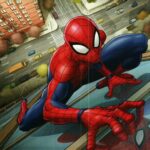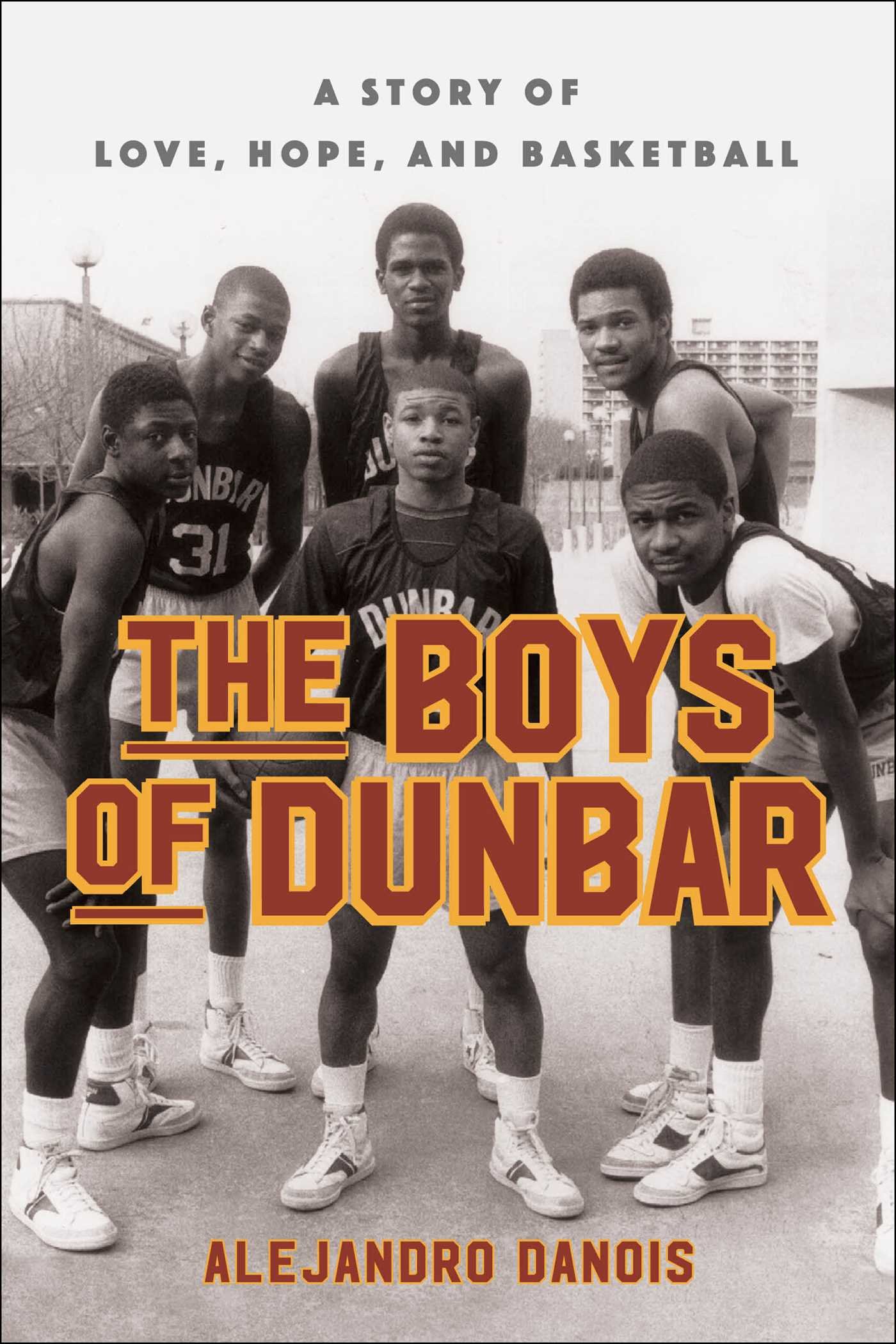Read Time:12 Minute, 34 Second
No matter how far we move away from our hometowns, no matter if we stay where we grew up the rest of our lives, no matter how our careers pan out professionally, no matter who we marry or how many kids we have or where we end up living or relocating to, there are some things in our lives that remain constant.
For me, it’s what I learned playing high school basketball. It may seem irrelevant and in some ways it is. I hear you thinking “It was so so long ago. Why does it matter? Turn the page. Grow up. Stop living in your past.”
I’m not living in my past. I’m enjoying remembering the past and trying to find meaning in it to help me, maybe, live better in the future, be a better father, or practice writing more.
Playing high school basketball, I learned what it felt like to get whipped physically and psychologically, to get pushed around and humiliated. And to sweat, to lean over, and hold me up by holding my knees because I was just so tired of the on-court up-and-back confrontation.
And sometimes I won, played quite well, came through in the clutch. Often I lost. Isn’t that life in a nutshell?
Why all this on a Saturday morning?
Because of a Christmas gift, one of my favorite friends in the world sent me a few months ago. It was a book called “The Boys of Dunbar.” My college friend had heard me talk several times (living in my past again) about my days playing some pretty high-level high school in the Washington, D.C. area. I had told him my team played Dunbar of Baltimore my senior year. We battled them, lost by eight. We were pretty good, a legitimately good program.
Dunbar was even better.
What I remember most about that game was Reggie Williams scoring 28 points with soft and gorgeous jump shots from the baseline. I also remember the buttery smooth movements of David Wingate.
Man those guys were quick, and disciplined, and skilled, and played with no extra BS, all business, good competitors, no trash talk, no flamboyance. They played as if they respected their opponents. And they beat you senseless with their ferocity, determination and slick talents. Very hard team to win against.
So I knew about some of the players who would be featured in this book, Williams and Wingate. And of course many years ago I had heard about them becoming the following year the number one team in the United States.
But to be honest, I didn’t really feel like reading the book. I thought I knew the story and it would just be a rehash of how great a high school team it was. And I figured it wouldn’t be engagingly written.
I was wrong.
Nicely crafted by author Alejandro Danois, and easy to take in, and full of backstories about the family lives of these players, I was struck by how much about these guys I had played against I didn’t know – and could not relate to. Especially gripping for me is to now know how different my family life was from the guys I had played against. We lived in completely different worlds as kids.
I grew up in a nice comfortable suburb called Bethesda, Maryland. I had a father who always came home at night and made sure we were fed and cared for. I didn’t worry about food stamps. We had enough money. And he didn’t do drugs.
I got a solid education and never worried about getting shot while traveling home from basketball practice. My parents were college graduates and came to my games.
These Dunbar players lived every day of their lives I’ve never even spent one day experience. Struggling in the tough and dangerous city neighborhoods of Baltimore, these guys survived from day to day concerned about having enough to eat, avoiding drug pushers and gunshots.
The most poignant example of the shots flying comes up when the story of the team’s superstar point guard, Tyrone Muggsy Bogues, was just five years old. In a street altercation, he got caught in the crossfire and took gun pellets in his arms, thighs, shins, and calves.
“Ever since that day, something happened inside of me,” he said in the book published in 2016. “It’s hard to explain but even as a little kid, getting shot, thinking I might die, and surviving, that gave me an inner strength. I felt like I could survive anything. I had this will, even back then, that if I wanted something, if I set my mind to something, I was going to work as hard as I could to get it. I had this belief, this inner confidence, from the day that I got shot, as crazy as it may sound, that I could do anything that I set my mind to.”
Bogues, who ended up being five feet three inches tall – extremely short by basketball standards — had to be tough-minded plenty of times along the path he wanted to take.
“We’d be walking home from school and have to dive under cars or hop over fences when we heard gunshots and saw people shooting one another. We saw terrifying stuff.”
For a period of time in high school, he temporarily moved out of his family apartment to live with his aunt in a nearby public housing project. Her boyfriend had been getting aggressive with her and Bogues want to check in on the situation.
One time, he says, the boyfriend tried to test Bogues. “I had him choked in a matter of seconds with an old wrestling move, and that ended that.”
Before he became a basketball phenom at Dunbar, he excelled at wrestling. What an athlete.
David Wingate
Several other players on that team suffered hardships foreign to me. David Wingate’s mother was paralyzed in a wheelchair as he played high school ball. He became responsible for making her meals, making sure she took her insulin shots and carrying her up and downstairs before he went off to school. His mom, who only saw him play once in high school, had only a fourth-grade education; his dad made it through sixth grade.
Adding to his difficulties, he got cut from his middle school basketball team. So he wasn’t a star and winning all the time from the beginning. He had to work on his game to be a high school star, which he achieved.
In the book he’s quoted about a recent trip he took back to his old neighborhood where he grew up. He remembered his mom urging him to stay out of trouble back then.
“All of those people that she was trying to keep me away from…are either locked up, strung out on drugs, or dead now.”
Reggie Lewis
Life was equally tough for Reggie Lewis. At the age of 17, his mother had a heart attack. Surviving on food stamps and welfare checks, he lived in six different row houses by the age of six. His dad walked the streets of Baltimore selling fruit from a buggy.
Like Wingate, basketball stardom didn’t come easy. He, too, was left off his freshman team roster at a nearby high school before transferred to Dunbar. Years later, while a star for the Boston Celtics, he died due to a heart ailment.
Reggie Williams
As great as he became like a high school player – earning national player of the year honors – Reggie Williams wasn’t given special treatment around his house.
“Inside my house, I had the same status as everybody else. My exploits on the basketball court meant nothing.”
His mother didn’t come to his games. She did break down and cry one day.
“She told me just didn’t have any money and didn’t know how we were going to make it,” he said.
Skip Wise and Ernie Graham
Then the book dives deeper into more tough stories about former Dunbar of Baltimore players who had great talent but went sideways. Skip Wise, who scored 39 pounds against powerhouse DeMatha in 1974 and became the first freshmen to make First Team All ACC, got addicted to heroin and spent his greatest prime basketball years in prison.
Ernie Graham, who starred for the University of Maryland, also got hooked on drugs and his pro career didn’t pan out as it could have. He spent over a million dollars in narcotics.
“He stole from anyone and was a constant presence in pawnshops. His daily life became a nightmare of pain made worse by the sinister and debilitating crack heroin, and powder cocaine that coursed through his veins.”
And Barry Scott, another great Dunbar player, went to college to play basketball. Two years later he was found dead lying in a gutter.
Not all about hardship
But of course, this book was not all about tragedy and hardship. Far from it and quite the opposite in many ways. This is a story about one basketball season, 1981-82, when all these players came together on the same team and unbelievable things happened because of their precocious talents, openness to being coaches, marvelous work ethics, and the tough practice regimens and values given to them by their coach, Bob Wade.
With Muggsy blowing peoples’ minds with his quickness, uncanny ability to steal the ball, and masterful dribbling, this team went crazy on opponents. Four of them – Williams, Wingate, Bogues, and Reggie Lewis – eventually played in the NBA. Think about that. Ninety-nine percent of high school teams have no one go to the NBA. This one team had four.
The one game that sent them into the stratospheric heights of high school hoops greatness went down at Camden High School in New Jersey. There was the home court of one of the nation’s best basketball programs.
It was supposed to really test Dunbar, maybe end its unbeaten season. All it did was solidify this team among the best to have ever been put together.
At halftime, they sizzled past Camden to a 50-21 lead. By the end, it was still dominant: 84-59. This smashing was stunning because Camden had lost only one game in its home gym in four years.
“Dunbar is the best basketball team I have ever seen,” Camden head coach Clarence Turner said after the game.
When the season wrapped up, the team’s record stood at 29 wins. There were zero losses.
“Dunbar is as fine a high school team as I have ever seen,” said DeMatha head coach Morgan Wootten, whose team had played Dunbar and had won several national titles. “I’ve never seen one better. The thing that Dunbar has that none of those other teams had is Bogues.”
The engine: Bogues
Bogues made this engine run all the way into high school basketball’s all-time glory. I would have played against him my senior year but a Baltimore public school rule didn’t allow him to transfer to Dunbar until his junior year. By then I had graduated and gone on to Wake Forest University not to play basketball – though to this day I wish I had given that a shot. I probably wouldn’t have found any playing time there, but I was good enough to be on the team.
This is relevant because I remember walking around the Wake Forest campus and seeing Muggsy walking around, too. He played college hoops for Wake Forest. I wondered what it was like for Muggsy playing hoops there. I could relate to that possibility and to the high school team he played for.
The most worthwhile part of this book for me, what made it worth the time to go back in history and learn more, was what Muggsy had to say about how his experience playing basketball for Dunbar taught him so much more than just putting the ball in the hoop and winning championships.
This is a bit lengthy, but it’s moving. Listen to Muggsy:
“Before my junior year at Dunbar, basketball had been a hobby. It was something that we all loved to do. But after that season, it became more than that. I started to realize that the guys we looked up to like Skip Wise and Ernie Graham, they were talented enough to take the game as far as they wanted. But drugs took them off the path. My dad being involved in a criminal lifestyle took him off his path of being a father who could be there for us whenever we needed him. I walked into the season just wanting to play ball with my boys but walked out of it with a vision. Me and Russ (Reggie Williams) made a pact that we were going to stay on the right path, that we were going to overcome all of the obstacles, distractions, and negative influences.
“That was the first time I felt the true power of that orange ball. It not only gave me so many wonderful role models and friendships. It taught me about values, principles, integrity, work ethic, having a positive attitude, hard work, and being a leader. And like Mr. Wade always aid, regardless of all the success we might find on the court, it was what we did off the court that was really going to matter…When I got to Dunbar I was just a young kid. After that season, I felt a young man, a young man who was ready to chase his dreams.”
Muggsy chased his dreams so well that the next year Dunbar went undefeated again — 31-0. Consensus national champions. Schoolboy basketball glorification until the end of time. So he won all 60 of his high school basketball games at Dunbar. Every single one. Almost no one in the world who has ever laced up the sneakers and played high school hoops can say that.
Next, he starred at Wake Forest and played in the NBA for 15 seasons. He was the shortest player to ever play in the league.
So what does all this mean?
It means it’s OK to reflect on your past years as a high school basketball player – even several decades after the fact. It doesn’t mean I’ve lived in my past ever since. It means I like to look back on it as a time in life when I was chasing my dreams and becoming a young man, just like the guys on this team.
We all learned on the basketball court what we could stand, what bothered us, how to help out teammates, how to lose, and how to practice to be better and better.
Those are lessons worth remembering because they’re relevant for all of us right up until today.
This is a book about life and death, about suffering and poverty and the triumph of the human soul.
Author Profile

-
Sammy Sportface, a sports blogger, galvanizes, inspires, and amuses The Baby Boomer Brotherhood. And you can learn about his vision and join this group's Facebook page here:
Sammy Sportface Has a Vision -- Check It Out
Sammy Sportface -- The Baby Boomer Brotherhood Blog -- Facebook Page
Latest entries
 BonusApril 26, 2024Spiderman Favored to Win Golds At Olympics Climbing Events
BonusApril 26, 2024Spiderman Favored to Win Golds At Olympics Climbing Events BonusApril 24, 2024German Rides Record 93-Foot Wave In Run Up to Olympics Surfing
BonusApril 24, 2024German Rides Record 93-Foot Wave In Run Up to Olympics Surfing BonusApril 22, 2024Old Friends Reconnect As New Friends
BonusApril 22, 2024Old Friends Reconnect As New Friends BonusApril 21, 2024Sportface Unveils Board of Directors to Land Sneaker Deal
BonusApril 21, 2024Sportface Unveils Board of Directors to Land Sneaker Deal

